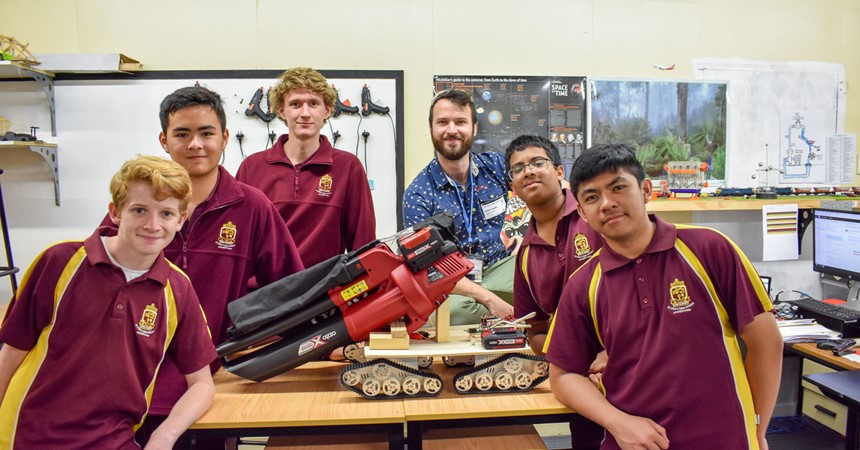The world has become increasingly digitalised and schools in the Diocese have responded by prioritising STEM (science, technology, engineering and mathematics) subjects to ensure students have the necessary skills to compete in a technology-dominated workforce of the future.
A number of our schools, such as St James Primary School, Kotara South, and St Pius X High School, Adamstown, have recently adopted technology programs provided by Newcastle- based organisation, Broader Learning. This unique educational enterprise was founded to teach children about robotics and how to use and understand code by providing quality STEM learning programs to schools and students from Kindergarten to Year 12.
Broader Learning Director, James Rabbitt, said the programs taught students the concept of critical thinking and how to use coding and robotics to solve common problems. He said coding also provided students with a new creative medium for expressing themselves and their ideas.
“We ask students to combine problem solving, creativity, computational thinking and spatial awareness in order to navigate their robot through a set challenge or obstacle course,” Mr Rabbitt said.
“This adds a crucial physical element to their coding that more deeply engages students and gives them a sense of pride in their work.
“Our project at St Pius X was a part of the Student Maker Projects initiative that we ran in partnership with groups of high school students from four schools in the Newcastle region,” Mr Rabbitt said.
The aim of this initiative was to provide students with an opportunity to learn STEM skills in a different format. Groups received funding and guidance from an undergraduate mentor provided by Broader Learning, to build a STEM project of their choosing designed to solve a ‘problem’.
“The four students at St Pius X worked with an undergraduate mechatronics engineering student and chose to build an off-road Roomba (robotic vacuum) called the Litterbot, to solve the problem of excessive litter in school playgrounds,” Mr Rabbitt said.
Technology Coordinator at St Pius X, Cherie Borger, said Mr Rabbitt and Broader Learning had been a supporter of St Pius since 2015, when he made regular visits to assist teachers and students with their understanding of coding and robotics.
“We were thrilled to be asked to be a part of the pilot Student Maker Project.
“The mentors from Broader Learning were enthusiastic and knowledgeable guides, encouraging the group to explore practical problem solving in the Science, Technology, Engineering and Mathematics domains,” she said
“It’s a unique and powerful medium as it allows the sharing of work and creations across the world wide web with people from other countries and walks of life,” he said.






















































































